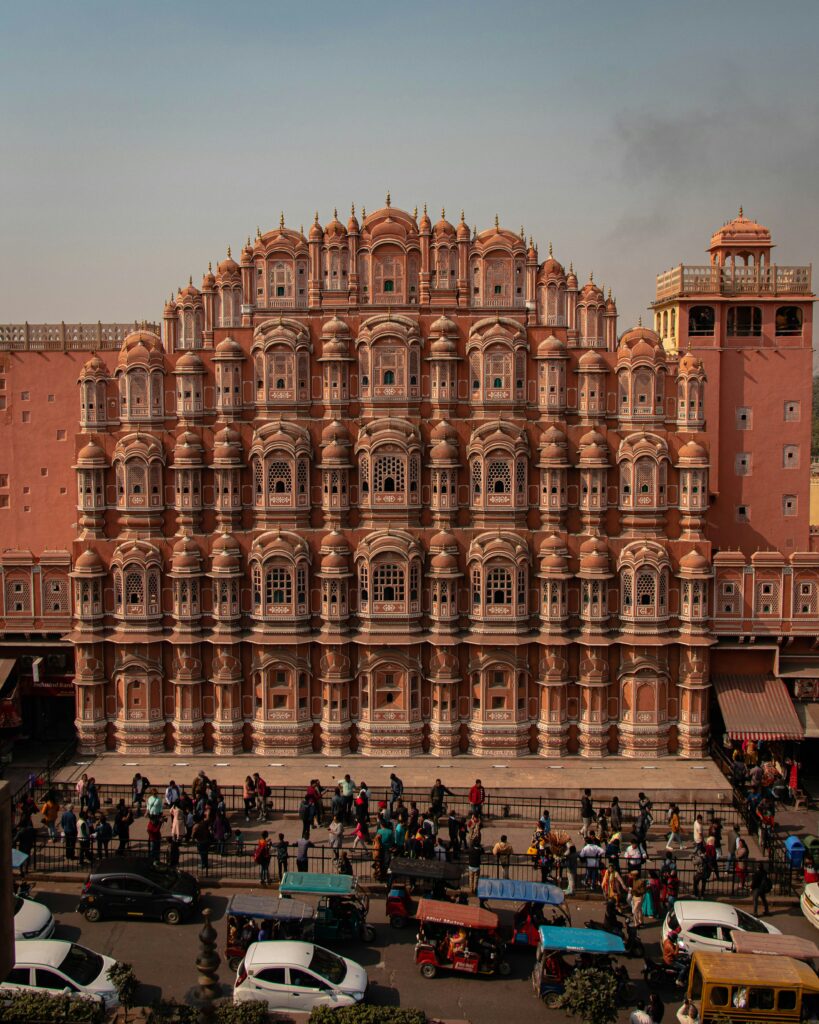Few places in India capture the imagination quite like Rajasthan Tourism does. With its majestic forts, vibrant culture, golden deserts, and timeless traditions, Rajasthan offers travelers an unforgettable experience. Whether you’re a history buff, a nature lover, or someone seeking spiritual serenity, this northwestern state has something for everyone.
A Land of Kings and Legends
Rajasthan, often referred to as the “Land of Kings,” is steeped in history. The region was once home to powerful Rajput dynasties who built some of the most iconic forts and palaces in India. Cities like Jaipur, Udaipur, Jodhpur, and Jaisalmer are dotted with architectural marvels that tell stories of valor, romance, and grandeur.
- Jaipur, the capital city, is famously known as the Pink City. It boasts attractions like the Hawa Mahal, City Palace, and the astronomical wonder Jantar Mantar.
- Udaipur, often called the Venice of the East, enchants visitors with its lakeside palaces, especially the stunning Lake Palace and City Palace.
- Jodhpur, the Blue City, is dominated by the imposing Mehrangarh Fort, offering panoramic views of the city.
- Jaisalmer, the Golden City, rises like a mirage from the Thar Desert, with its sandstone fort and intricately carved havelis.
Each city contributes uniquely to the charm of Rajasthan Tourism, making it a mosaic of royal heritage.
Cultural Richness and Festive Spirit
Rajasthan Tourism is not just about monuments—it’s also about the people, their customs, and the vibrant festivals that bring the state to life. The locals are known for their warm hospitality, colorful attire, and soulful music.
Some of the most celebrated festivals include:
- Pushkar Camel Fair: A blend of livestock trading, cultural performances, and spiritual rituals.
- Desert Festival in Jaisalmer: A showcase of folk music, dance, and camel races.
- Teej and Gangaur: Celebrated by women with great enthusiasm, these festivals honor love and devotion.
Traditional Rajasthani music and dance forms like Ghoomar, Kalbelia, and Bhavai add rhythm to the desert landscape. The state’s handicrafts—block-printed textiles, blue pottery, and silver jewelry—are also a major draw for tourists.
Natural Wonders and Wildlife
Beyond its cultural and architectural splendor, Rajasthan Tourism also offers breathtaking natural beauty. The Aravalli Range, one of the oldest mountain ranges in the world, cuts through the state and provides a lush contrast to the arid desert.
Wildlife enthusiasts can explore:
- Ranthambore National Park: Famous for its tiger population and ancient ruins.
- Sariska Tiger Reserve: A haven for leopards, deer, and birds.
- Keoladeo Ghana Bird Sanctuary: A UNESCO World Heritage Site, ideal for birdwatching.
The Thar Desert itself is a spectacle, especially when experienced through a camel safari or a night under the stars in a desert camp.
Culinary Delights of Rajasthan
No journey through Rajasthan Tourism is complete without indulging in its rich cuisine. Rajasthani food is known for its bold flavors, use of spices, and hearty ingredients suited to the desert climate.
Must-try dishes include:
- Dal Baati Churma: A signature dish made of baked wheat balls, lentils, and sweet crushed wheat.
- Laal Maas: A fiery mutton curry that’s a favorite among meat lovers.
- Gatte ki Sabzi: Gram flour dumplings in a spicy yogurt gravy.
- Ker Sangri: A unique desert vegetable preparation.
Sweet treats like Ghewar, Mawa Kachori, and Malpua are perfect for those with a sweet tooth.
Spiritual and Architectural Marvels
Rajasthan Tourism also caters to spiritual seekers. The state is dotted with temples, mosques, and Jain pilgrimage sites that reflect its religious diversity.
- Pushkar: Home to one of the few Brahma temples in the world and a sacred lake.
- Ajmer: Famous for the Ajmer Sharif Dargah, a revered Sufi shrine.
- Mount Abu: Rajasthan’s only hill station, known for the Dilwara Jain Temples with exquisite marble carvings.
These sites offer peace and introspection, adding a spiritual dimension to the travel experience.
Sustainable and Responsible Travel
In recent years, Rajasthan Tourism has embraced sustainable practices. Eco-friendly resorts, heritage homestays, and community-based tourism initiatives are helping preserve the environment and empower local communities.
Travelers are encouraged to:
- Support local artisans by buying handmade products.
- Choose eco-conscious accommodations.
- Respect local customs and traditions.
- Avoid single-use plastics and minimize waste.
This approach ensures that the beauty and culture of Rajasthan remain intact for future generations.
Best Time to Visit and Travel Tips
The ideal time to explore Rajasthan Tourism is between October and March, when the weather is pleasant. Summers can be extremely hot, especially in desert regions, while monsoons bring brief relief but may limit outdoor activities.
Travel tips:
- Dress modestly and comfortably, especially when visiting religious sites.
- Carry sunscreen, sunglasses, and a water bottle.
- Book accommodations and tickets in advance during peak seasons.
- Hire local guides for deeper insights into history and culture.
Conclusion: Why Rajasthan Tourism Should Be on Your Bucket List
From the golden sands of Jaisalmer to the tranquil lakes of Udaipur, Rajasthan Tourism offers a journey that’s both enriching and exhilarating. It’s a place where history whispers through ancient walls, where every sunset paints a royal canvas, and where every encounter leaves a lasting impression.
Whether you’re planning a solo adventure, a romantic getaway, or a family vacation, Rajasthan welcomes you with open arms and endless stories. So pack your bags, charge your camera, and get ready to explore the royal heartbeat of India.



